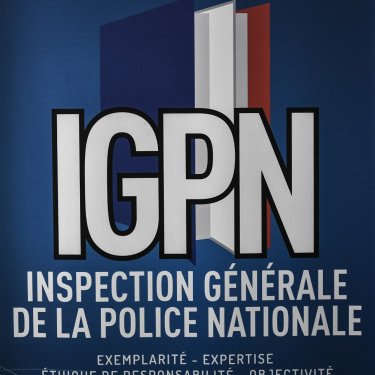France: RSF denounces use of concealment of professional secrecy accusation and calls for its removal

Following a Libération journalist’s hearing by police in connection with a local police intelligence leak, Reporters Without Borders (RSF) reiterates its call for the repeal of the offence of "concealment of breach of professional secrecy" and demands guarantees that the confidentiality of sources will not be undermined.
Willy Le Devin, the deputy head of Libération’s investigation unit, was questioned by the National Police General Inspectorate (IGPN) on 6 November in a preliminary enquiry into a suspected “concealment of breach of professional secrecy” that the Paris prosecutor’s office is conducting at interior minister Gérald Darmanin’s request.
RSF has long condemned the use of charges of concealment against journalists (concealment of breach of professional secrecy, concealment for breach of investigation secrecy). In cases where documents covered by professional secrecy are published, these offences pose a legal risk to journalists who publish information of public interest. Furthermore, investigations into breaches of professional secrecy or of the investigation process cannot constitute a justification for violating the principle of confidentiality of sources.
Under article 2 of France’s 1881 press law, the police can also invoke an “overriding requirement in the public interest” as grounds for opening an investigation with the aim of identifying a journalist’s source. This far too broad exception should not be invoked in this case, for example, to peel Willy Le Devin’s fadettes. RSF has always criticized the use of these conveniently broad and fuzzy grounds, and their use in this case would be disproportionate.
“The confidentiality of journalists’ sources is an essential element of press freedom, and subjecting journalists to investigations with the aim of identifying their sources should not be possible,” said RSF secretary general Christophe Deloire. “Accusing journalists of concealing a crime is also unacceptable because it poses an illegitimate legal risk. We reiterate our call for the removal of this offence for journalists. RSF cautions the authorities against prosecuting Willy Le Devin because it would constitute a serious violation of the right to inform.”
Le Devin was questioned about an article published on 17 October, the day after the decapitation of Samuel Paty, a teacher at Bois-d'Aulne middle school in Conflans-Sainte-Honorine, in Yvelines department, who had shown his students Charlie Hebdo cartoons of the Prophet Mohammed in a class on freedom of expression in early October.
Le Devin’s story quoted from an internal Yvelines police intelligence memo dated 12 October showing that the police had been following the controversy within the local community about Paty’s class.
France is ranked 34th out of 180 countries in RSF's 2020 World Press Freedom Index.



